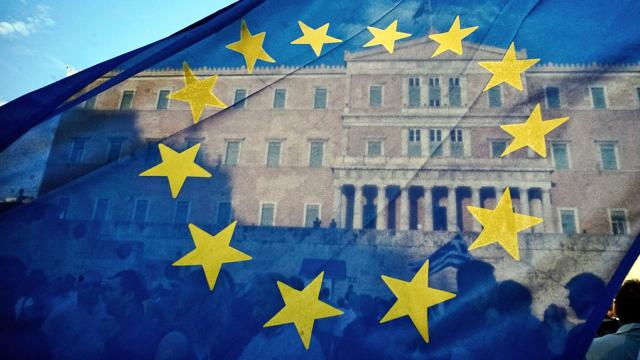On Thursday, members of European Parliament held a vote on the misguided new copyright reforms that posed a threat to memes, online encyclopedias, news organisations and pretty much everything that’s good online.
Incredibly, lawmakers decided not to do the dumb thing and voted down the bill. It isn’t over yet, but there’s plenty of reason to celebrate.
In June, the European Union’s legal affairs committee voted to move forward with a vote on the first major overhaul of European copyright law since 2001.
The vote on Thursday was widely expected to be the decisive moment on whether the legislation would become the law of the land, but public outcry and a campaign by some of the biggest names in tech appears to have worked in raising awareness about the shortcomings of the bill.
In a 318-278 decision, EU lawmakers elected to send the legislation back to committee for review, and a new vote is expected in September.
The controversy over the new copyright directive stems from two vague but incredibly consequential pieces of the legislation.
The first, Article 11, calls for a “link tax” that would require popular websites to pay news organisations for linking to articles or using snippets of text.
The second, Article 13, mandates that the same platforms — estimated to cover the top 20 per cent of sites — use a content filtering system to prevent copyrighted works from being uploaded to the web.
In both cases, the bill lacked specificity in how websites should implement the requirements, leaving many to expect that they would simply take the most heavy-handed approach to avoid running afoul of the law.
More than anything, the legislation was wrongheaded because it gave no consideration to fair use practices.
Earlier this week, Italian, Spanish, Estonian, Latvian, Polish, French and Portuguese versions of Wikipedia blocked users from accessing pages on their sites in order to raise awareness about the copyright directive and to encourage users to contact their representatives.
Wikipedia is a quintessential example of the good that can come from the fair use of links, quotation and media sharing. Articles 11 and 13 pose a direct threat to the platform’s ability to continue to operate while large tech companies have the resources to absorb the cost of the legislation, were it to become law — demonstrating the ways the bill would actually benefit the tech overlords it was intended to rein in.
While the legislation’s supporters hoped to give news outlets and copyright holders some protection from platforms such as Google and Facebook that have managed to gobble up advertising revenues, it posed the risk of giving those corporations even more power.
A company such as Google already has content filtering systems in place that it’s spent a lot of money to implement, and it could pay the link tax if that became necessary. But as Tim Berners-Lee, inventor of the World Wide Web, and more than 100 other tech pioneers argued last month, smaller platforms would struggle and innovation would be stifled.
“The damage that this may do to the free and open Internet as we know it is hard to predict, but in our opinions could be substantial,” they wrote.
The fact is, we’re living in a crucial moment when lawmakers around the world are quickly realising that big tech must be regulated in some way, and they’re in a hurry to make something happen. But they should be listening to the kind of people that signed the letter of opposition along with Berners-Lee when they’re crafting regulations.
It’s hard to overstate how surprising it is to see politicians pull back from the brink of disaster and simply say “let’s reconsider this”. But there’s no guarantee that further consideration will produce a better outcome. This copyright directive took people by surprise, and it didn’t have time to worm its way into the collective consciousness the way that, say, net neutrality has. It’s more important than ever that activists keep this topic in the public conversation.
[BBC]
